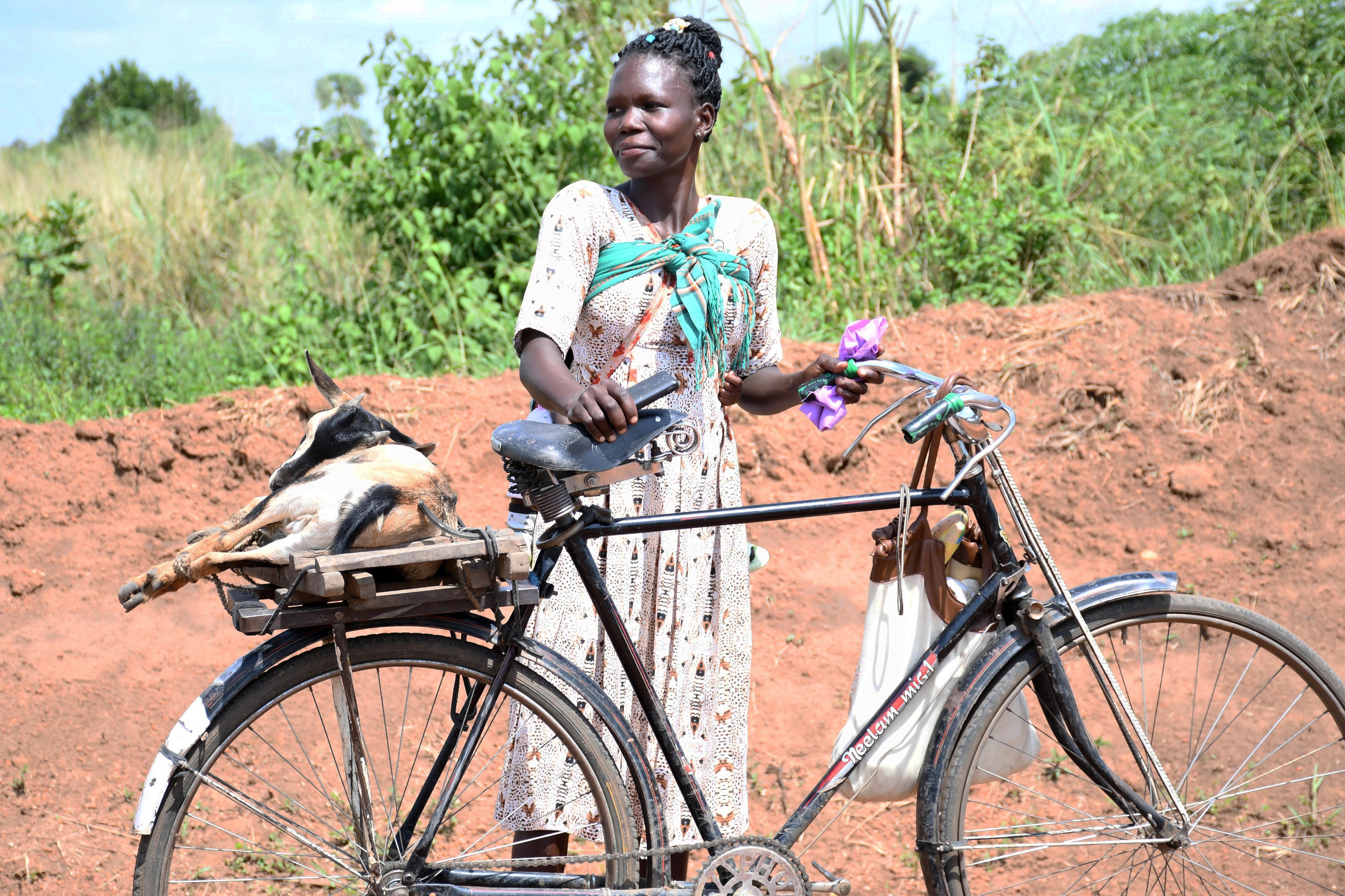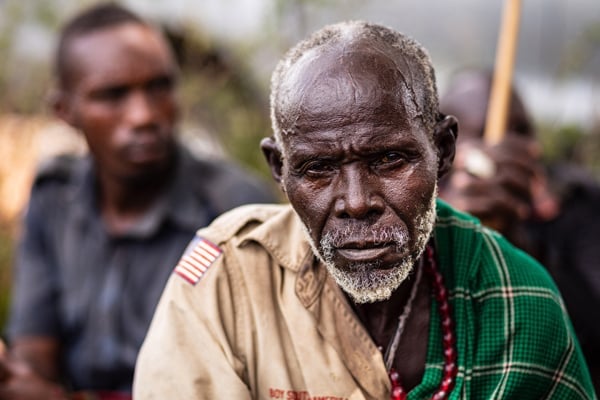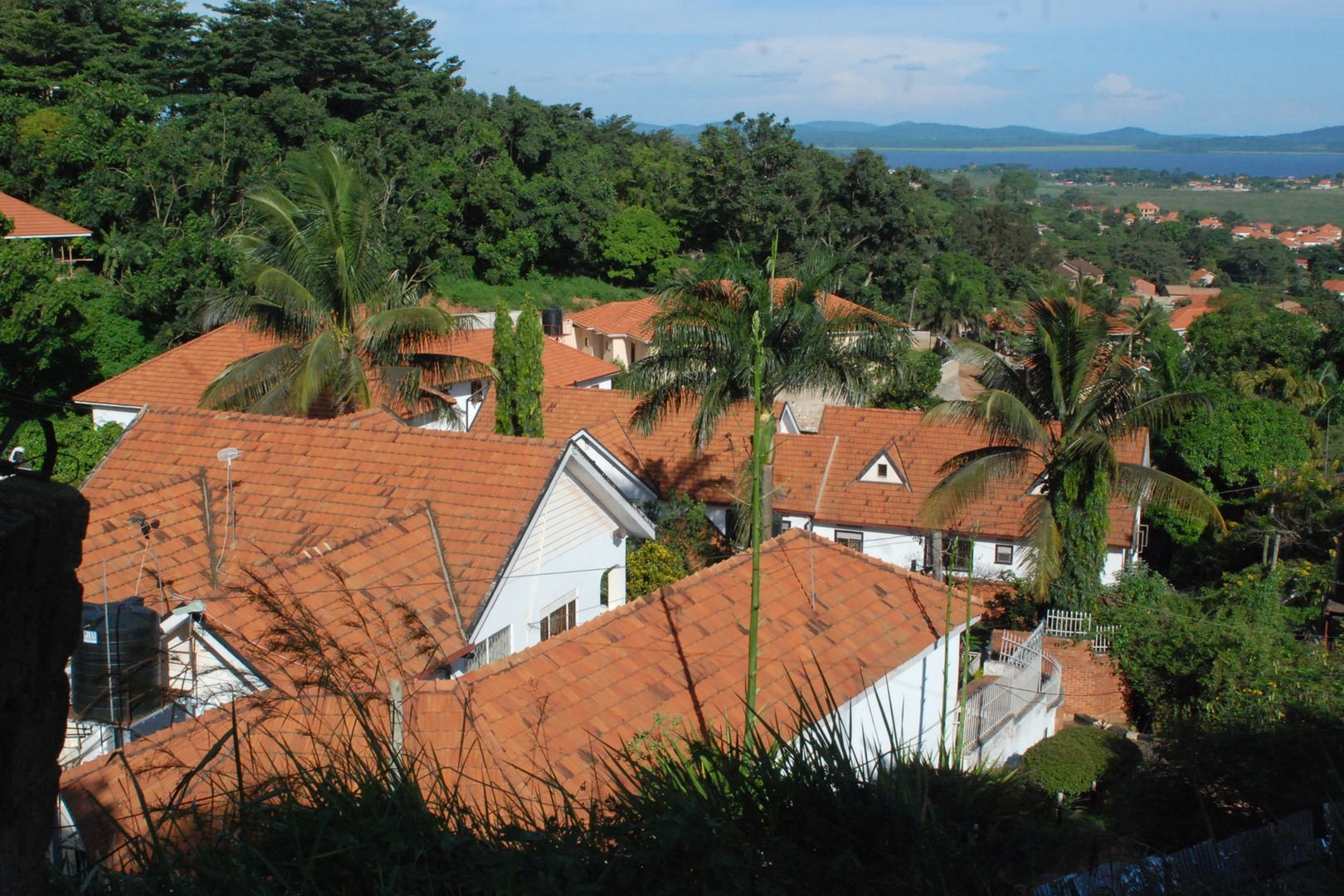PDM managers stuck as locals change enterprises

Ms Grace Ayado with a goat she bought using PDM cash in Alwa Sub-county, Kaberamaido District, last week.
What you need to know:
- PDM is a government programme meant to uplift 39 percent of households from a subsistence economy to a money economy through the distribution of a revolving startup capital or loan of Shs1m to each of these households.
The Parish Development Model supervisors across a number of districts are at a crossroads as some beneficiaries switch to other enterprises as opposed to those that qualified them to be enlisted for the programme.
This has already left a number of district commercial officers in a speculative mode over whether they will be able to recover the money.
As per the PDM guidelines, beneficiaries were meant to select enterprises that they deemed lucrative and less labour intensive to be able to generate returns to enable them to pay back the money.
But a mini-survey conducted by the Daily Monitor in several districts across the country shows otherwise.
According to Mr Moses Waako, the Namutumba District commercial officer, the deviation from the selected enterprise is an indicator that recovery could turn out to be difficult.
“We started reaching out to the PDM beneficiaries but what people are doing is different from what they prioritised to do,” he said.
Whereas Mr Waako said there is interference and instigation from politicians, he said some beneficiaries have blamed the volatile markets and harsh weather for their change of the projects.
“Some people believe that politicians are perfect and role models; so, they believe what they say. Instead of encouraging people to use the money well, they are telling them to “eat” it,” he said.
Ms Ruth Namukose, a beneficiary, told this paper that the money came in late, making her deviate from vegetable farming to poultry keeping.
Bukedi Sub-region, which comprises districts such as Pallisa, Kibuku, Budaka, Butaleja and Butebo, some families are reportedly using the PDM cash to clear outstanding debts.
The district secretary for health and education, Mr Augustine Moleka Majanga, said the intended goal of the programme may not be achieved.
“The beneficiaries are spending the money on other personal activities such as clearing loans, not the enterprises they applied the money for,” he said.
The PDM programme, which was launched in Kibuku District in February 2021, is designed to pull 39 percent of Ugandans out of poverty.
According to the programme, each of Uganda’s 1,0694 parishes will be receiving Shs100m each financial year, with each beneficiary meant to get Shs1m.
Mr Stephen Wakula, another resident of Tirinyi Town Council, said the process they undergo to access PDM funds is bureaucratic and is entrenched with corruption, adding that it is the reason why some beneficiaries are misusing the money.
So far, Kibuku has received Shs2.3b, which has been disbursed to the beneficiaries.
The sub-region that relies on subsistence farming has 43.7 percent of locals living in poverty, according to district data.
In Teso, residents say since the disbursement of PDM funds to the beneficiaries, the prices of livestock have gone up for the last one month.

In Ocorimongin cattle market, one of the busiest in Teso, goats and sheep as of Friday were being sold at about Shs300,000, up from the normal Shs150,000.
These PDM beneficiaries say it is just a deliberate act by businessmen to exploit them as they move to purchase the animals as their major project.
Seasonal factor
Mr Samson Idoyel, 60, a resident of Amworwongora in Palam Sub-county, told the Daily Monitor that in their group, they had selected maize growing as the enterprise but because the money came in during off season, they chose to bend the rules and embraced livestock but the prices for the latter are high.
“We are being told that the goats and sheep are on demand and it is the reason the prices have gone high,” he explained.
Ms Mary Florence Acam, the commercial officer for Kumi Municipality, said the business persons dealing in livestock are taking advantage of the availability of PDM cash in the hands of beneficiaries.
She said many enterprises were selected but lately, most of the beneficiaries are investing the money into goat and sheep projects.
The State Minister for Fisheries, Ms Hellen Adoa, who is also the Serere District Woman MP, said the key issue at hand is for all stakeholders to ensure that the beneficiaries are monitored.
She said despite a few cases spending the money on luxuries, the majority of the people who have received their share have tried to invest it in livestock.
“The unpredictability of the weather seems to be pushing the majority into buying animals,” Ms Adoa added.
In Masaka District, Mr John Baptist Matovu, the PDM focal person, acknowledged that some beneficiaries have diverted the money into other businesses and that some have spent it on alcohol.
He added that the district has so far received Shs724m under the programme.
Some beneficiaries in Lyantonde District are still stuck with the money in their homes as they contemplate on how to use it. Mr Muhammad Mugerwa, a PDM beneficiary in Lyantonde Town Council, said he had not yet utilised it.
“I am likely to change the business I asked for, for a better project,” he said.
In the Lango Sub-region, there has been a sharp deviation as beneficiaries abandon selected enterprises to instead buy alcohol and clothes.
Ms Judith Ayek, the Kole Woman Member of Parliament, also the chairperson of the Committee on Equal Opportunities at Parliament, said PDM has been hugely abused.
“People are drinking, people are buying clothes, they are using money for paying school fees, which is not bad but what economic activities are they really doing?” she wondered.
In Otuke District, they received Shs5.6b for PDM in the last financial year, while this year, 23 PDM Saccos received Shs117 million each.
A beneficiary, Ms Jacinta Auma of Ating-Orum PDM Sacco, confirmed the money has changed her life.
“I have bought a cow and it is already expecting,” she added.
In Kasese, Deputy Resident District Commissioner Zepher Mubingwa said while some beneficiaries used the funds well, some did not use it for its intended purpose.
He said his office is about to run a monitoring campaign to establish how every beneficiary used the money.
“The main reason PDM was formed is to get people out of poverty. And yes, if you have got the money, you must use it appropriately. Those who will be found to have misused the money will be compelled to return it,” Mr Mubingwa said.
According to Mr Kamandison Alujo the chief of Media Parish in Koboko Municipality , they received Shs600 million but those who selected agricultural related enterprises have expressed challenges over harsh weather conditions.
Beneficiaries speak out
Mr John Buruga from Midrambe Village in Asunga Parish, Media Sub-county, said he received Shs1m, which she used to buy inputs and pay for labour.
“I received Shs300,000 at first and later I received the balance of Shs700,000. This money is helping me to buy inputs like seeds, paying labour. But the weather has been harsh,” he said.
In Koboko District, Mr Robert Dumba, a resident of Kiakurie Village, Alla Parish in Dranya Sub-county, who received Shs1 million, said: “I have embarked on brick laying and expect to earn at least Shs2.5 million shillings from the sale of bricks. This will boost my income as I want to lay more than 25,000 bricks in the dry season.”
In Moyo District, Mr James Ruga, a business man in Moyo Town Council, claimed that PDM will not serve its intended purpose because of delay in the disbursement of funds.
“This money comes when the season is off, especially when the farming sector cannot perform. Ideally, each sub-county should have tractors to assist the farmers in large scale farming. But this is not done. Farmers depend on hoes which can’t do much for commercial farming,” he added..
Compiled by Simon Peter Emwamu, Philip Wafula, Ronald Seebe, Denis Edema, Mudangaha Kolyangha, Fred Wambede, Antonio Kalyango, Catherine Ankunda, Bill Oketch, Jerome Kule Bitswande, Alex Ashaba, Marko Taibot, Rashul Adidi, Ronald Acema, Scovin Iceta and Abubaker Kirunda




